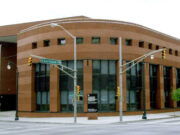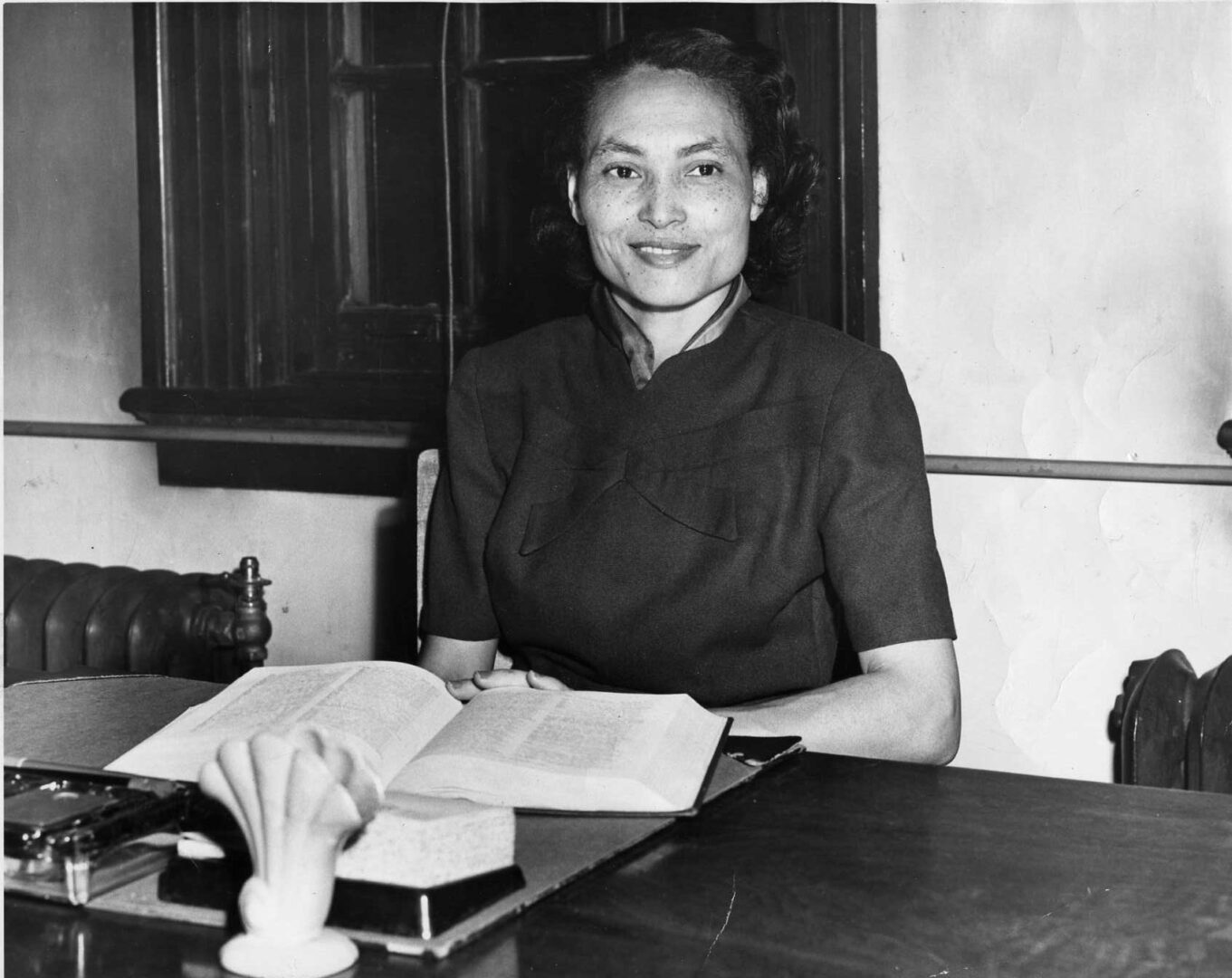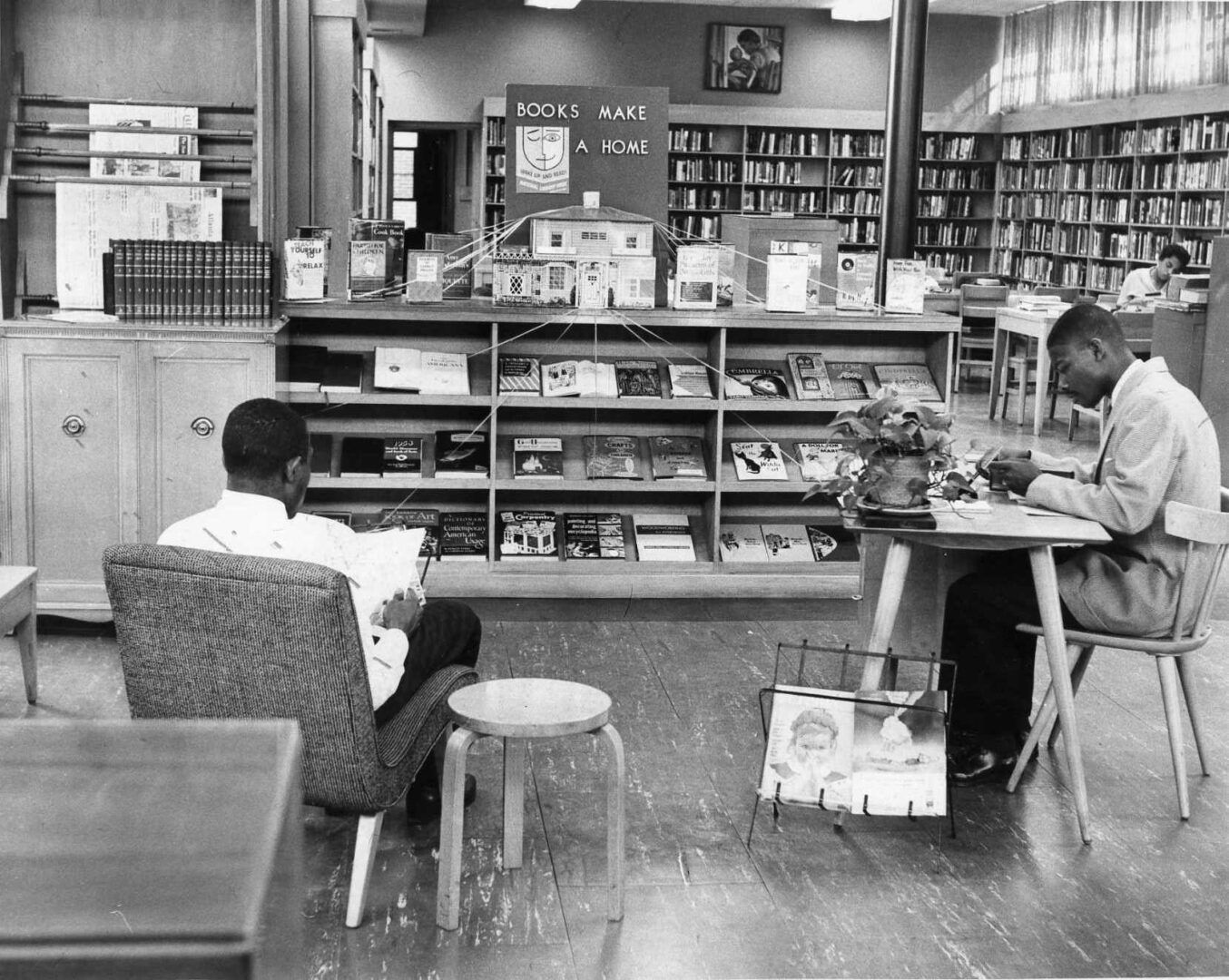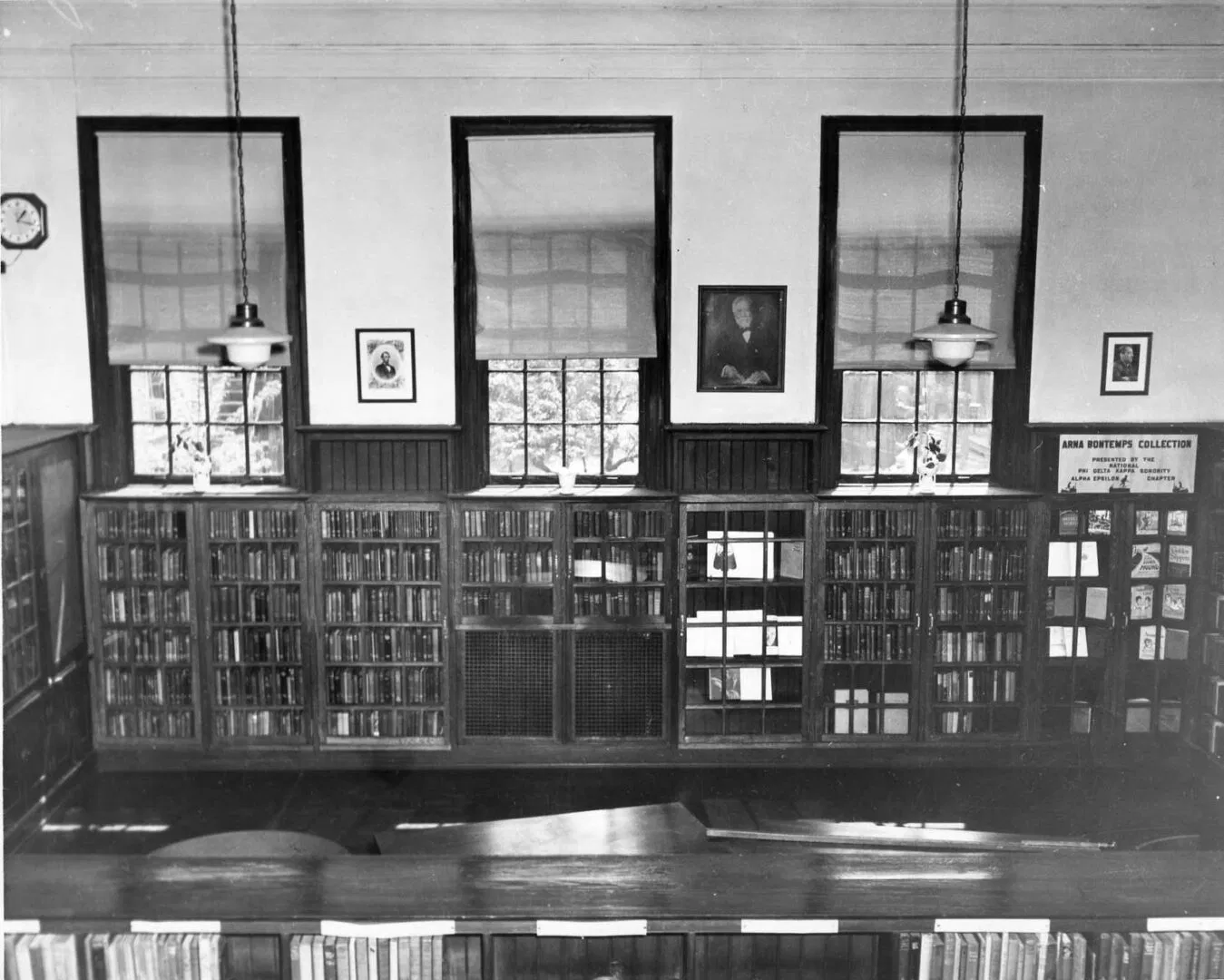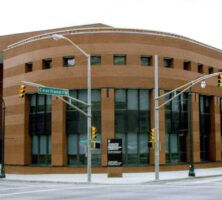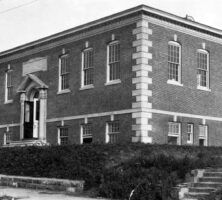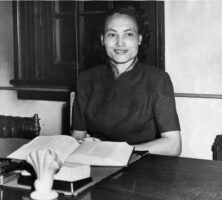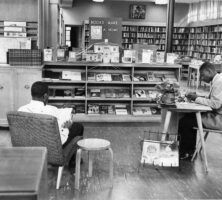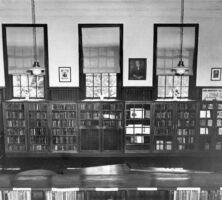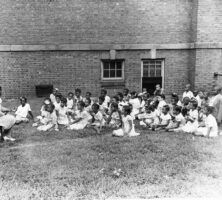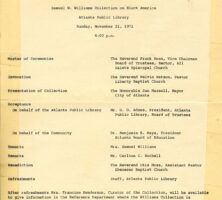Anchoring the west end of the Sweet Auburn historic district, the Auburn Avenue Research Library on African American Culture and History opened May 1994 in Atlanta. A special library of the Atlanta-Fulton Public Library System (A-FPLS), it is the first public library in the Southeast to offer specialized reference and archival collections dedicated to the study and research of African American culture and history and of other peoples of African descent. In 2001 the library received a Governor’s Award in the Humanities.
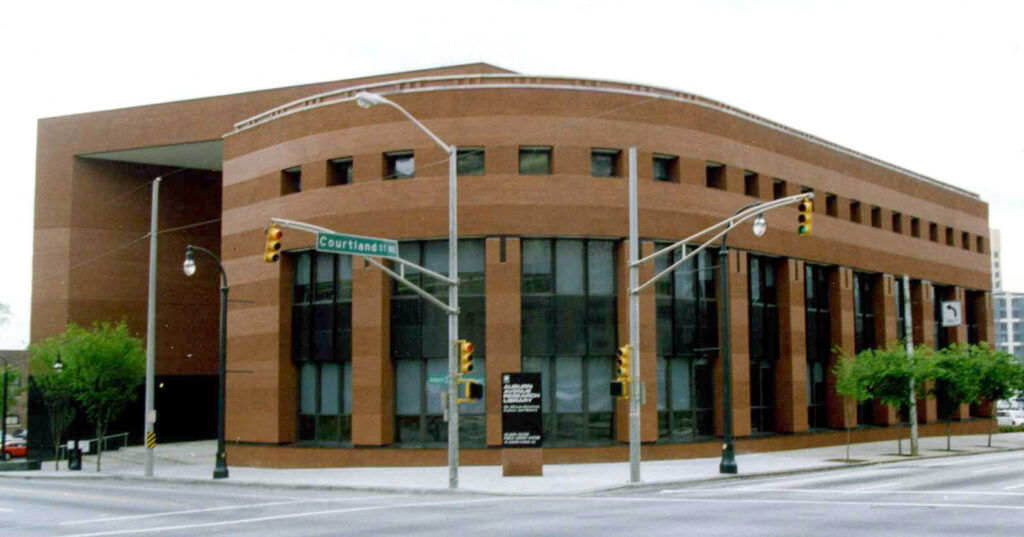
History
Decades before the Auburn Avenue Research Library opened, its core collection was formed at the Auburn Branch of the Carnegie Library of Atlanta. The one-story red-brick building, located at 333 Auburn Avenue, officially opened July 25, 1921, becoming Atlanta’s first public library branch for African Americans. Before then, Black citizens were excluded under the era’s Jim Crow laws from public library service in the city, which began in 1902. In the book Living Atlanta: An Oral History of the City, 1914-1948 (1990) Homer Nash, a Black physician whose practice was on Auburn Avenue, recalled the period before the branch opened as a time when African Americans “had such a hard time getting books.”
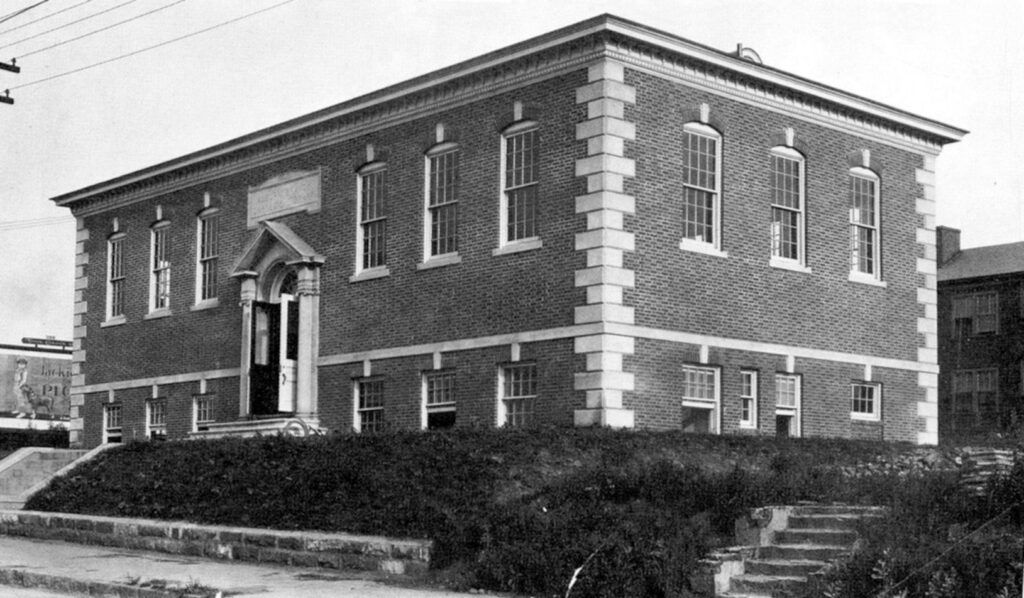
From 1921 until the branch closed in 1959, numerous women of color managed and administered the facility and provided educational and community programming. Among them were Alice Dugged Cary and Annie L. McPheeters, who was responsible for much of the development of the core collection, known as the Negro History Collection, in size and significance. A special, noncirculating collection, it was formally organized in 1934, the same year McPheeters was appointed assistant librarian.
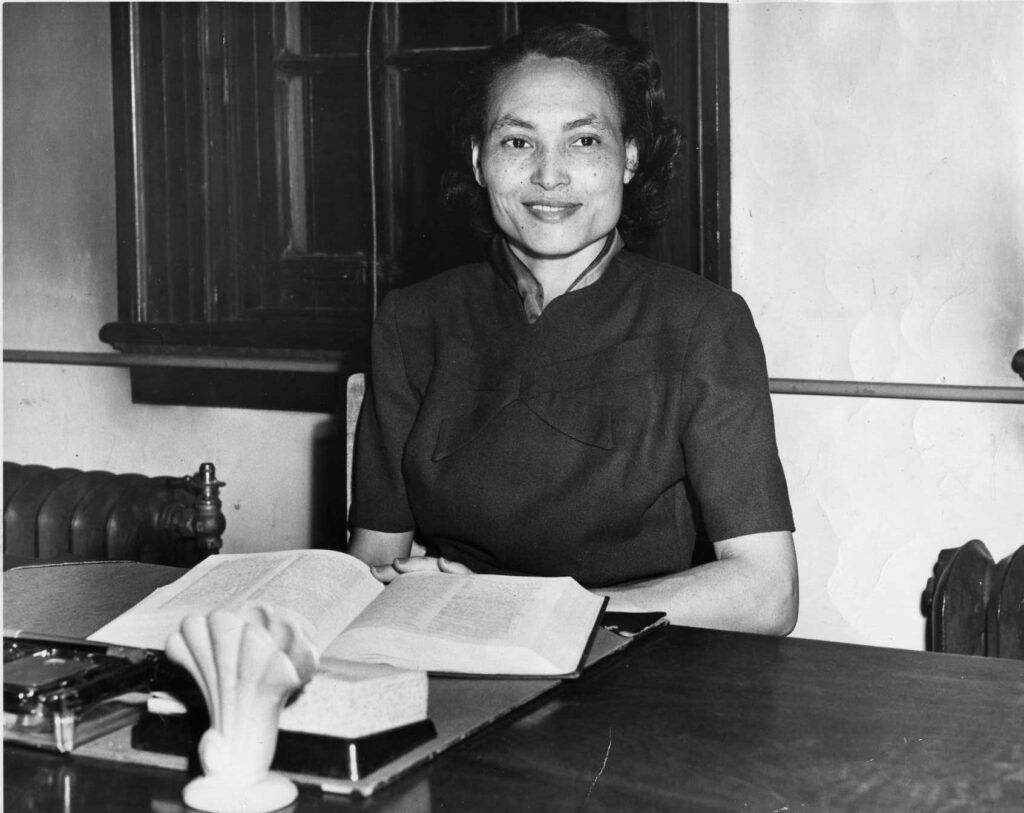
The Negro History Collection comprised the volumes owned by the Auburn Branch in combination with titles acquired through an adult education project sponsored by the American Association of Adult Education, the American Library Association, and the Julius Rosenwald Fund. Later, a group of children’s books—named for Arna Bontemps, a noted Harlem Renaissance writer who became a children’s book author and librarian—were added. From the mid-1930s to the late 1940s the collection grew to include bound copies of magazines, newspapers, and scholarly journals by, for, and about African Americans, including the Atlanta Daily World, Crisis, Journal of Negro Education, and Negro History Bulletin.
During the same period, an increasing number of African Americans migrated to Atlanta’s west side. Accompanying this growth were residents’ demands for expanded public library service. In response, the city allocated funds for the construction of another library branch to serve the needs of Black citizens. On December 6, 1949, the newly built West Hunter Branch opened on the corner of West Hunter Street and Morris Brown Drive. It became the second home of the Negro History Collection. For the next two decades, during which time the A-FPLS desegregated in 1959, the collection remained at the West Hunter Branch, where McPheeters served as librarian until her retirement from the library system in 1966.
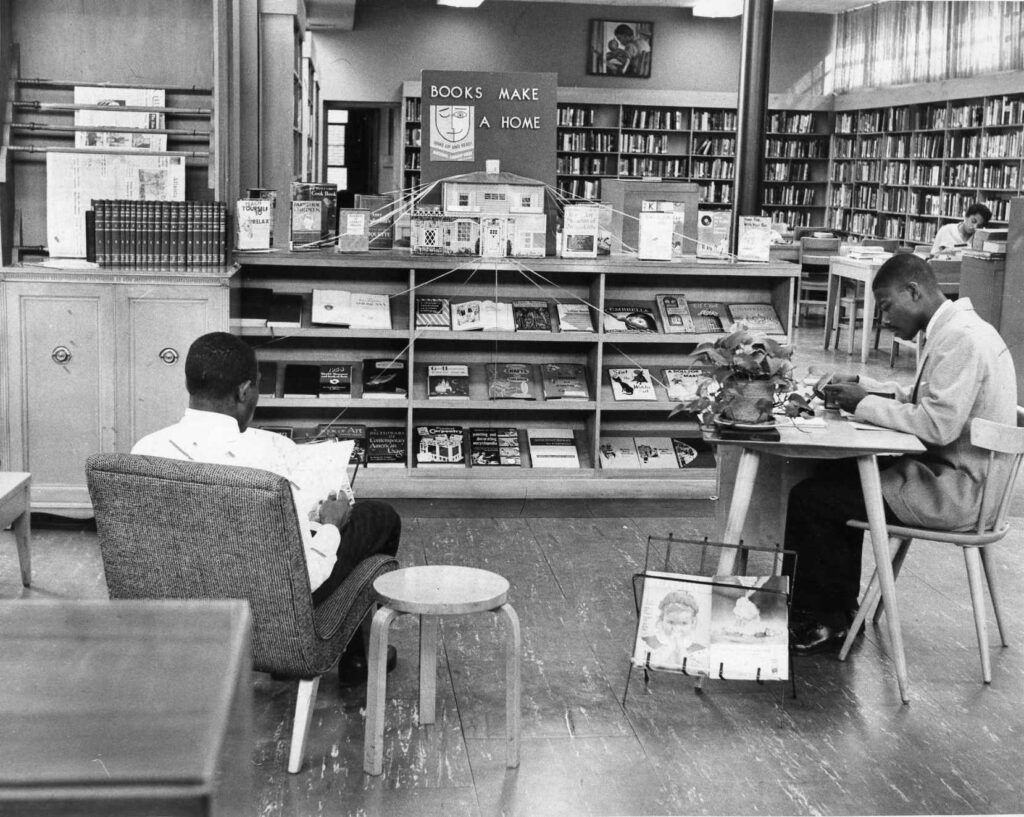
In 1970 the Negro History Collection moved once again from the West Hunter Branch to the downtown Carnegie Library building, just off Peachtree Street, where Central Library now stands at One Margaret Mitchell Square. One year later, the A-FPLS Board of Trustees officiated the status of the collection, naming it the Samuel W. Williams Collection on Black America, in honor of the Atlanta-based educator, theologian, and philosopher. The collection remained at the main library until 1994, when it was transferred to the newly built Auburn Avenue Research Library, a 50,000-square-foot, four-story structure of red brick and Black granite at the corner of Auburn Avenue and Courtland Street. Following almost fifteen years of growth, however, the library outgrew its space. On November 4, 2008, Fulton County voters approved a library bond referendum, which included funds to enhance and expand the facility. In July 2014 the Auburn Avenue Research Library temporarily closed for its renovation and expansion. The newly renovated Auburn Avenue Research Library on African American Culture and History reopened August 4th, 2016.
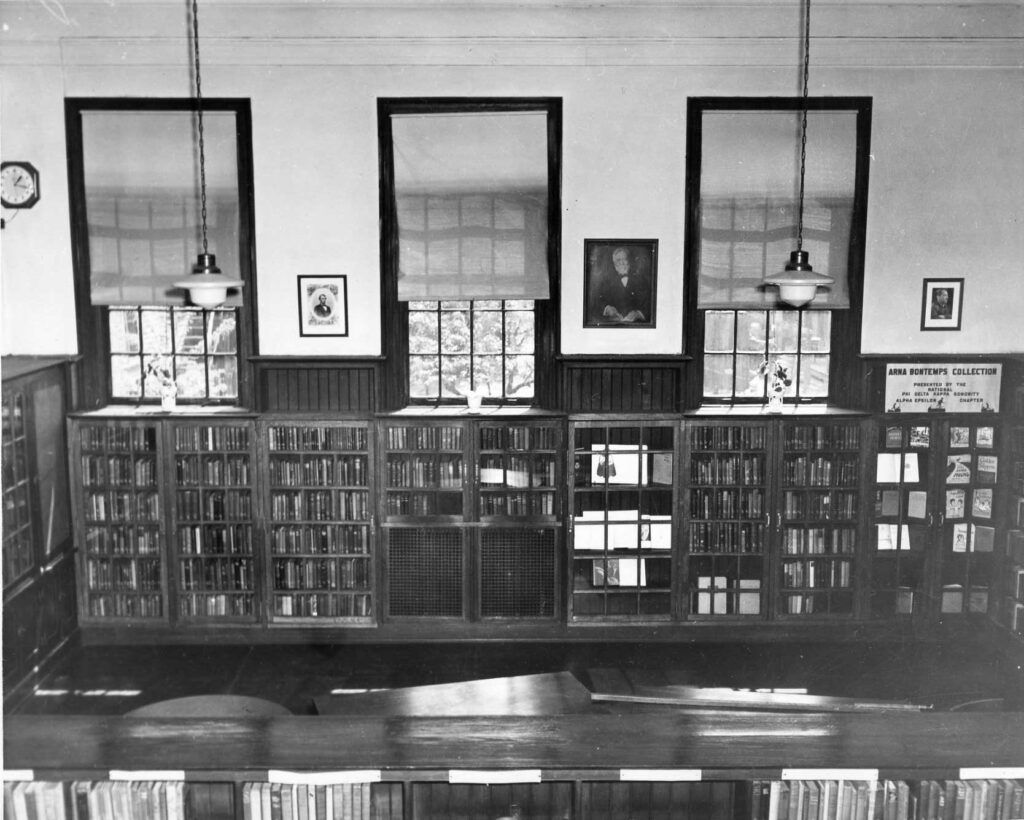
Services
The Auburn Avenue Research Library consists of three divisions: reference and research, archives, and programs. Together, the divisions support the library’s mission “to promote specialized library service, archival resources, and culturally/educationally related activities essential for study and use by the general public, students, and scholars of the culture and history of peoples of African descent.”
The Williams Collection forms the cornerstone of the reference and research division, which maintains a variety of textual and microform records, a noncirculating library of secondary sources, and a broad array of web-accessible research databases for the study of African American culture and history and the African Diaspora. Accessible on the library’s second floor, the reference and research division provides a comfortable, quiet environment for thought and inquiry, which includes research tables, microform readers, study rooms, computer stations, and exhibition cases. There, reference staff serve the public on-site, as well as off-site through e-mail, mail, telephone, and fax inquiries.
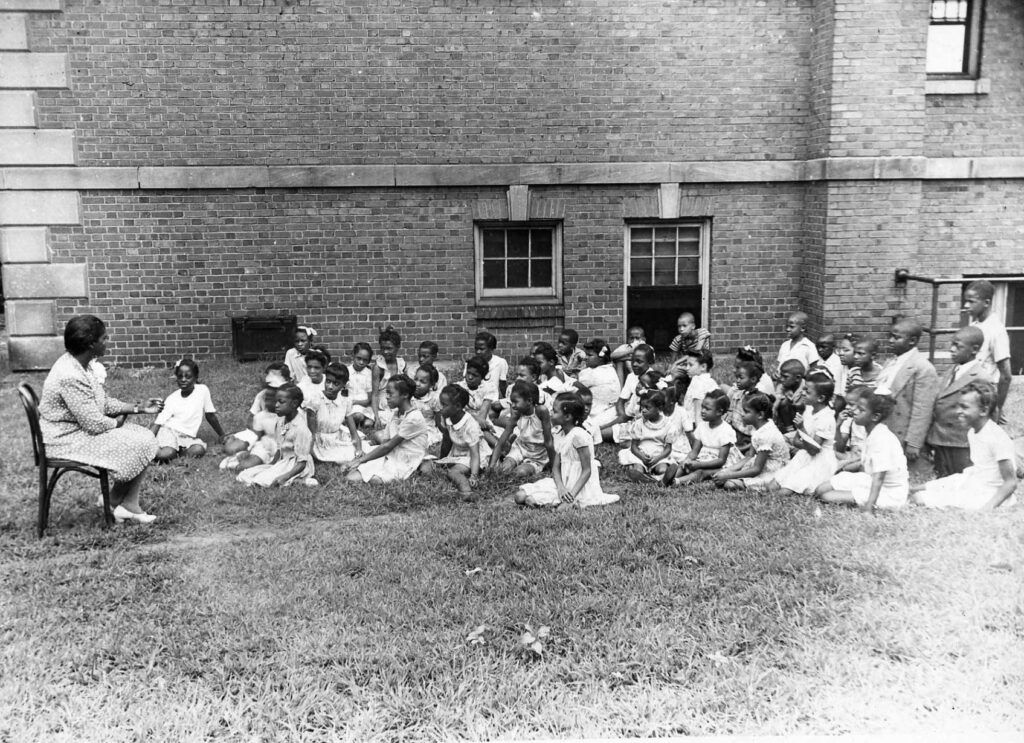
Located on the third floor, the archives division preserves and makes available unique historical records of enduring value related primarily to African American culture and history, with a concentration on local Atlanta history. These primary sources include not only textual and special media records (cartographic records, graphic arts, still photographs, sound recordings, and moving images) but also art and artifacts, microforms, rare book collections, and textiles. Archives staff assist patrons on-site in the archives reading room, which includes research tables, study rooms, and exhibition cases, and makes collections web-accessible through digital exhibits and finding aids presented by the Digital Library of Georgia, an initiative of GALILEO, the state’s virtual library.
The programs division supports the library’s mission and serves the public through book discussions and readings, exhibitions, film screenings, lectures, seminars, tours, and workshops. The facility accommodates these activities on the main and second floors—through an auditorium, small gallery, conference rooms and two exhibition spaces, including including the Cary/McPheeters Gallery. Through its cultural, educational, and scholarly programming—which is local, national, and transnational in scope—the programs division helps interpret and highlight the institution’s rich collections and provides outreach to the general public, as well as to Atlanta’s academic community.
Ideally located in downtown Atlanta, the Auburn Avenue Research Library is a short walking distance to numerous visitor and tourist destinations, restaurants and retail shopping, and historic districts, and is part of the National Park Service’s National Underground Railroad Network to Freedom Program.


